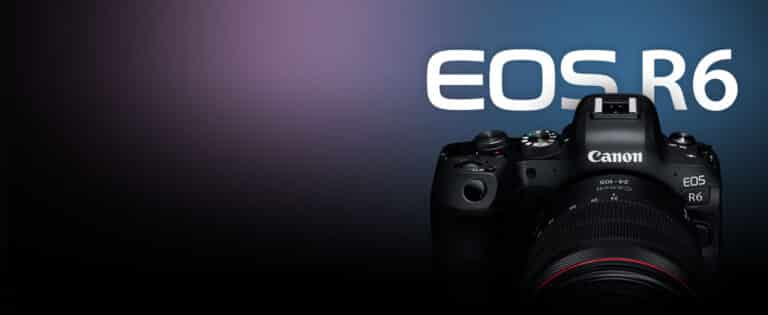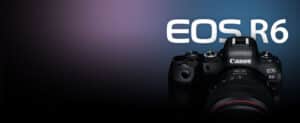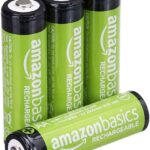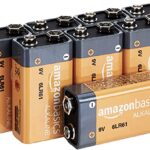Canon took a bit to get its bearings with mirrorless cameras, however, the Canon EOS R6 is evidence that all those days are long gone.
A short glance at its spec sheet reveals that it is capable of competing with and even outperforming the greatest mirrorless cameras like Sony, Nikon, and Fujifilm in several areas. What do you mean by that? It’s a 20.1-megapixel full-frame camera with class-leading image stabilization, a 6,072-point dual-pixel autofocus system, 12fps rapid shooting, 4K video, and a high-resolution OLED electronic viewfinder, to name a few features.
In short, it features practically everything you might want in a mirrorless camera for enthusiasts, with only a few minor flaws. The lack of a truly high megapixel count, as seen on its more costly 45MP brother, the Canon R5, and the comparably priced 33MP Sony A7 IV, is one of the most notable, whereas video falls short of the absolute best.
But make no mistake: the Canon R6 is at the absolute top of the full-frame mirrorless camera market, and I’ve thoroughly enjoyed my time with it. It’s a no-brainer for our top mirrorless cameras list, as well as our best cameras list in general. In this Canon EOS R6 review, we’ll look into what makes it so unique.
What you will see here?
Canon EOS R6: Price and availability
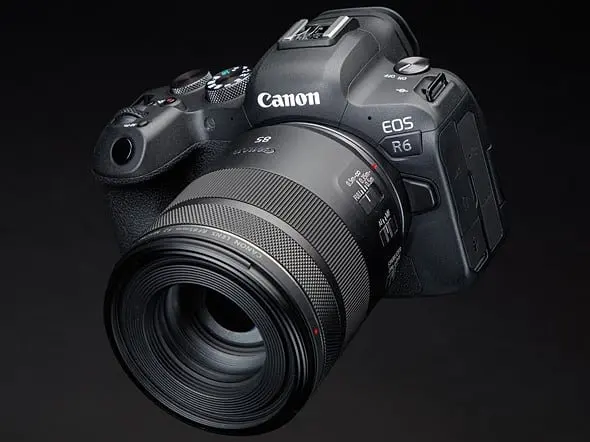
The Canon EOS R6 is released in July 2020 and will cost $2,499 again for body only. It’s also available in two kit lenses: $2,799 so the RF 24-105mm f/4-7.1 IS STM and $3,599 for the RF 24-105mm f/4 L IS USM.
I put it through its paces with the superb RF 24-70mm F2.8 L IS USM lens. This retails for $2,399 on its own. But don’t suppose you’d have to spend so much. Because Canon now offers a 24-model RF lens lineup, that is R6 compatible. The RF 50mm f/1.8 STM costs $199, while the RF 600mm f/4 L IS USM costs $12,999 (yes, really).
With a $99 adapter, you can use any of the dozens of older EF lenses, or a $199 adapter provides every EF lens with the specific control ring function present on all RF lenses. A battery grip ($349) is also available.
Design and Handling
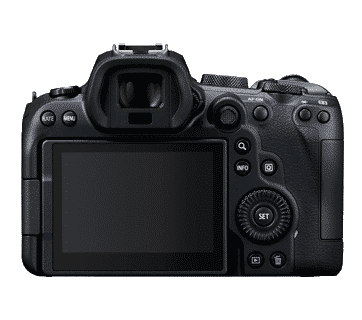
The R6 has a very traditional “Canon” feel to it, so if you’re moving to mirrorless for the first time before using one of heritage brands’ DSLRs, you’ll feel right at home. It’s around the same size as a Canon mid-range model like the APS-C Canon EOS 90D. But also with the added benefit of a full-frame sensor & smaller associated lenses than a DSLR.
Although that is not the cheapest camera on the market, the hefty grip feels convenient and comfortable to carry, and most users can work with it all day without becoming exhausted.
The camera’s knobs and controls are mostly on the right side, using them to hold with your thumb. The on/off dial, as well as the “rate” and main menu buttons, are located on the left side of the camera. Because these aren’t likely to be used very often, it means keeping them out of the way over here.
Otherwise, especially if you’re using a Canon camera before, the setup is quite self-explanatory. Depending on the shooting mode, you can use the twin control dials to control the aperture and/or shutter speed.
Variety of settings
You may access a variety of widely used settings, including AF type, white balance, etc. By tapping the Q button just on the camera’s backside. You may also use the joystick to move the AF point from across the screen and go through the main & quick menus.
A fully articulating 1.62-million-dot 3-inch screen is handy for taking selfies and recording films of yourself, as well as shooting from various angles. It’s joined by a 3.69-million-dot viewfinder, which, although not as good as the ultra-high-resolution unit found on the more costly R5, is still quite acceptable.
Two card slots are located directly from the camera. Both cards are SD cards with UHS-II compatibility. This makes great sense for hobbyists who are more likely to get a stack of SD cards on hand than the less frequent CFExpress card seen in the R5.
Specifications
- Wireless/Bluetooth: Yes
- Sensor: 20.1MP full-frame CMOS
- Image processor: Digic X
- Image stabilization: 5-axis, up to 8 stops
- Viewfinder: 0.5-inch OLED EVF, 3,690k dots, 100% coverage, 0.76x magnification, 120fps refresh rate
- AF points: 6,072 Dual Pixel CMOS AF II
- Display: 3-inch fully articulating touchscreen, 1,620k dots
- ISO: 100-102,400 (expandable to 50-204,800)
- Max video resolution: 4K at 60p, 50p, 30p, 25p, 24p
- Ports: USB-C, micro HDMI, mic, headphone, E3 remote, 2x UHS-II SD/SDHC/SDXC
- Shooting speed: 12fps mechanical, 20fps electronic
- Battery life (CIPA): 510
- Size/weight (body): 5.4 x 3.8 x 3.5 inches; 21 ounces
Features
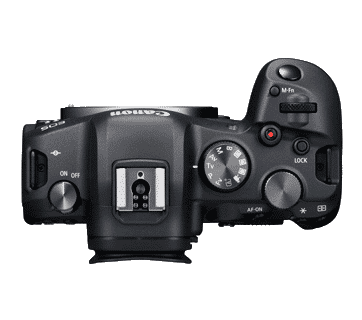
The full-frame sensor of the Canon EOS R6 boasts 20.1 megapixels, which is enough for most everyday settings but may feel a little “low.” It limits the amount of cropping you can perform after the fact but does assist keep file sizes under control. Of course, also it contributes to the R5’s cheaper pricing.
Canon has 3 distinct lens mounts at the moment, which can be confusing. It takes the full R attachment as an R camera. But if you have any EF lenses, you may use them with an adaptor, which works extremely well. However, upgraders will find it inconvenient to transfer lenses between Canon’s APS-C mirrorless range (EF-M).
This model comes with a 24-105mm f/4-f/7.1 “kit” lens. Owing to its broad focal length range, this lens is suitable for beginners and may also be used as a walkaround optic. Although there are lenses that are sharper and much more impressive.
The R5’s autofocus specs are very appealing. It has on Dual-Pixel CMOS AF II focus system, with 6,072 AF spots to choose from, covering the great majority of the frame. Both animals and humans have access to Eye AF (cats, dogs, and birds).
The R6 has some extremely appealing specs if you photograph moving things. You can shoot at up to 20 frames per second, or 12 frames per second if you’re using the mechanical shutter. The built-in photo stabilization is another unique look. This provides an advantage of up to 8 stops, making it the best in class.
Canon EOS R6: Vloggers
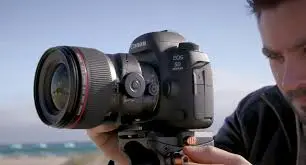
Vloggers and filmmakers will be interested to learn more about the R6’s performance capabilities. It’s a stripped-down R5 in this form. You get 4K footage, but it’s in UHD format and doesn’t support DCI. On the bright side, unlike certain Canon models, you may use the entire sensor, resulting in footage that is not cropped. You may have heard about the camera’s overheating concerns; these arise while shooting 4K for greater than 30 minutes, which may be a problem for some filmmakers, but filming short clips would be less of an issue for the ordinary user.
Performance
The R6 delivers a lot with its impressive range of features. The great news is that it performs admirably for the most part.
Let’s start with image quality: the camera can produce wonderful, warm, and well-saturated colors that, in most instances, remain on the right-hand side of realism while losing vibrance. Overall, all-purpose metering improves exposure accuracy. But it might be deceived in high-contrast conditions due to Canon’s preference for the active AF point.
Despite the sensor’s modest resolution by today’s standards. You shouldn’t be disappointed by how beautifully detail is portrayed, with an overall wonderful impression when seeing photographs in conventional printing and online sizes. When you focus at 100% on photographs taken at higher ISOs, you can notice some image blurring, but the images are still incredibly sharp.
Talking of high ISOs, the R6 performs admirably in low light, producing useable shots even at extremely high sensitivity levels like ISO 20000. However, for the best results, ISO 12800 and lower are advised.
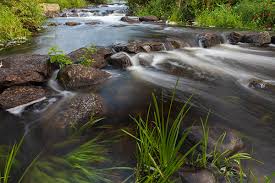
We wouldn’t expect anything less than excellent image quality from the Canon camera. However, the R6’s performance in other areas may surprise us the most. When photographing animals, autofocusing is especially impressive since it can track moving subjects. Eye AF can recognize animal eyes even when they are difficult to view with the naked eye, including dark eyes surrounded by black fur. This catches on to the object and tracks it around the frame, firing at high frame rates and hitting the target repeatedly. As a result, it’s great for wildlife & action shooters looking for a reliable companion.
Conclusion
The Canon EOS R6 has a lot to offer, and it’s fantastic to see Canon stepping up its player when it comes to full-frame mirrorless cameras. After a shaky start with Canon EOS R, the R5 and R6 feel like they’ve finally found their stride.
It produces excellent photos, with fps, amazingly autofocusing, & Eye AF being particularly impressive. Wildlife/animal photography has a fantastic hit rate. Individuals who shoot this subject on a regular basis might consider investing in an R5.
Some drawbacks to consider while using this camera. This is an excellent camera, a special design for still shooters. If you’re into videography, the R5 is a far better choice. Especially given the R5’s difficulties with overheating when taking long 4K video clips.
There’s also the issue of the R6’s low resolution compared to today’s standards. While 20.1 MPs should be sufficient for most everyday circumstances, the inability to crop tightly afterward may deter you.
The price is currently the most significant disadvantage. Although the EOS R6 is less expensive than the R5, it is more expensive than certain other models available. But you do get it you pay for in most cases.
Ultimately, the EOS R6 is a terrific camera that was well worth having a look at. Especially if you’re seeking a camera that can shoot quickly.


